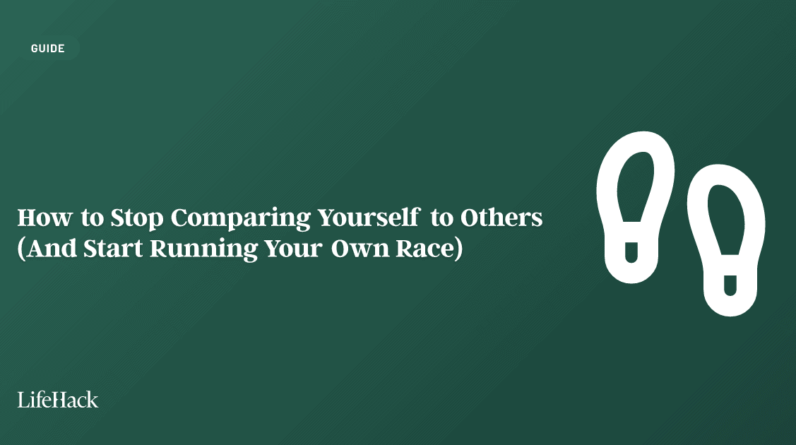
Life poses some awful and almost incomprehensible situations.
Sometimes it might feel as though our world has been shattered. At first, we might even feel like we’re in a dark, black hole of emptiness, unable to crawl or climb our way out. Yet, eventually, we do.
Humans are some of the most resilient creatures on the planet; Just look at our history alone! We’ve survived and thrived for thousands upon thousands of years.
And as tough and testing as some life events are, there’s a phenomenon that sometimes happens. We experience a positive transformation where we have a new zest and appreciation for life and everything in it.
This is known as “post-traumatic growth.”
We might experience:
- stronger relationships
- newfound appreciation
- new spiritual awareness
- increased resilience
- enhanced personal strength
Coming out of the worst events of our life with this mindset is one of the most incredible things that can happen.
But how can you do this?
If you’re in the thick of it now, what should you know about post-traumatic growth?
In times when you need it, repeat the following phrase, “I survived because the fire inside me burns brighter than the fire around me.”
What Are the Five Phases of Post-Traumatic Growth?
Post-traumatic growth is defined as the positive effect that occurs after a traumatic experience.
Those who have studied this phenomenon have noted five phases or stages of post-traumatic growth, which tend to happen quite naturally after a particularly tough event. These stages or phases include the following.
1. Personal Strength
This refers to how we decide to deal with the event that has transpired.
Usually, we’ll experience varying degrees of stress, anxiety, and even depression after these events. Some may turn to non-healthy ways to cope, such as alcohol or drug use. Meanwhile, others may process these emotions by using exercise, talking to others, or learning new things.
The latter often ignites a journey of great personal growth and development, helping us overcome a negative event with positivity.
Related Article: Emotions Out of Whack? Try The Emotional Freedom Technique (EFT)
2. New Possibilities
Trauma causes our perspective on the world to change (or at the very least, shift).
Perhaps certain things that mattered before the event don’t matter anymore. Or maybe things that didn’t matter now, do. Maybe you’re even attracted to different things that you weren’t previously.
Suddenly, there are opportunities and possibilities. From these, we may even find a greater meaning.
3. Relationships With Others
Post-traumatic growth further allows us to bond and connect with others.
By talking about it and building connections, we can understand we aren’t alone.
It also allows us to see how important our existing relationships are, perhaps, leading us to nurture those or hold them more closely to our hearts than we may have previously.
4. New Appreciation for Life
Knowing things could be worse provides us with a great sense of appreciation for what we do have.
It fosters the ability to practice more gratitude and focus less on things we don’t like about our lives (and for the things we don’t like, we can recognize that we have the ability to change them).
5. Spiritual Evolution
From there, many experience a spiritual change.
Perhaps you’ve seen death up close and now understand the true fragility of life. We may dive deeper into our spiritual self or seek out spiritual experience to expand this side of ourselves even further.
Related Article: Trauma Survivor? Why Body-Based Therapy Is Essential
What Are Examples of Post-Traumatic Growth?
There are various ways a person may experience post-traumatic growth. Here are a few common ones:
- Restored belief or renewed belief in a higher power
- Starting a charity related to the traumatic experience
- Increased desire to foster closer relationships with loved ones
- Breaking up an unhealthy relationship
- Starting a new job or life purpose
- Learning new things, such as trying a new hobby
It’s important to note, however, that post-traumatic growth isn’t limited to the above. Different people experience it in different ways, depending on the event and their current life situation.
How Do You Achieve Post-Traumatic Growth?
Growth after trauma takes work and effort.
Often, it involves educating ourselves regarding what happened, as well as gaining knowledge to move past it.
It further may involve learning emotional regulation, leading to:
- greater personal strength
- talking about what happened
- developing a narrative around what happened
- a desire to serve those who have experienced similar
For example, talking to a therapist, for many, can offer a great starting point to come to terms with the event that transpired and understand it, as well as develop a narrative that benefits you and your life.
Finding Support is Critical to Foster Post-Traumatic Growth
Reflecting, community, and support are critical pillars for post-traumatic growth.
We need to look inward, but also lean on others. We are tribal creatures at heart, and thus, we need a community to support us as we process life’s harsh realities. When we can’t hold ourselves up, others can, and vice versa. This is the power of community and support.
All of this isn’t to diminish the significance of a traumatic event. Rather, it’s to offer a way to help you move forward in a positive and constructive manner that benefits your life and others.
In times when you need it, repeat the following phrase, “I survived because the fire inside me burns brighter than the fire around me.”
Read Next: 5 Thoughtful Shadow Work Journal Prompts to Heal Your Wounded Inner Child
Editor’s note: This article was originally published May 4, 2023 and has been updated to improve reader experience.
Photo by Kun Fotografi







